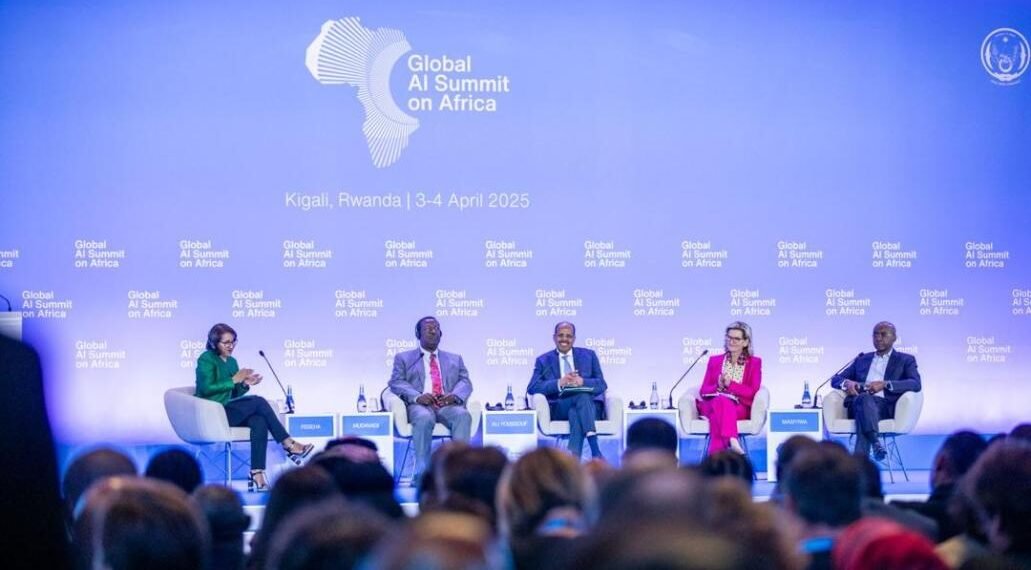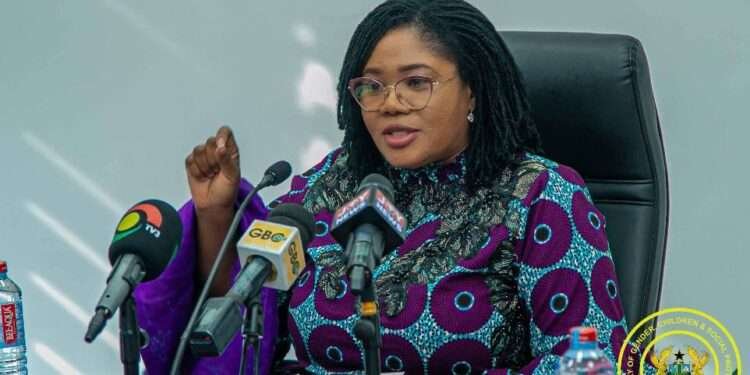Africa is taking decisive steps to cement its place in the global artificial intelligence (AI) revolution. Speaking at the High-Level Panel on Leadership in the Age of AI at the Global AI Summit on Africa, H.E. Mahmoud Ali Youssouf, Chairperson of the African Union Commission (AUC), emphasized the continent’s commitment to shaping an AI-driven future.
The panel featured distinguished leaders, including H.E. Paul Kagame, President of Rwanda; Hon. Musalia Mudavadi, Prime Cabinet Secretary of Kenya; H.E. Faure Gnassingbé, President of Togo; Strive Masiyiwa, Founder and Executive Chairman of Econet Group; and H.E. Doreen Bogdan-Martin, Secretary-General of the International Telecommunication Union.
H.E. Youssouf emphasized the need for leadership so the continent “is not just a participant but a frontrunner in the global AI transformation.” He highlighted the adoption of the Continental AI Strategy, a clear policy direction aimed at integrating AI into Africa’s development agenda.
The Mastercard Foundation has noted that “Africa is poised for a technological revolution, with AI playing a pivotal role in its socio-economic transformation.”
The continent’s demographic advantage is significant, as more than 60% of its population is under 25. By 2035, more young Africans will enter the workforce each year than in the rest of the world combined. This demographic dividend presents a unique opportunity to harness AI’s potential for sustainable development.
Recently endorsed by the AU Executive Council, the Continental AI Strategy reflects Africa’s commitment to leveraging AI for socioeconomic progress. The strategy provides a framework for AI governance and innovation at national, regional, and continental levels, fostering an ecosystem that is inclusive, sustainable, and resilient.
Over the next five years, the AU is supporting member states to integrate AI into national development plans, establish harmonized AI strategies, and develop policies to retain and attract AI talent. Efforts are also being made to mitigate brain drain, foster local expertise, and encourage public-private partnerships to accelerate AI investments and industry-driven solutions.
AU’s Implementation Strategy
H.E. Youssouf reiterated that the AU, through AUDA-NEPAD and its specialized institutions, is actively assisting member states in implementing the strategy. This includes providing technical assistance for AI policy development, organizing regional and continental dialogues to strengthen AI regulatory capacities, and advancing the AU Data Policy Framework.

This framework is crucial in enabling African nations to manage, govern, and utilize data as a key enabler of AI innovation. Currently, 22 out of 35 interested nations are benefiting from AU-led technical support in developing AI governance structures.
With the operationalization of the African Continental Free Trade Area (AfCFTA) and the adoption of digital trade protocols, Africa’s AI market is expected to experience exponential growth. AI is set to play a critical role in digital trade by enhancing efficiency, fostering innovation, and creating new business opportunities for young African entrepreneurs.
As the global AI market is projected to reach USD 3.68 trillion by 2034, Africa must align its AI developments with its economic agenda and digital transformation goals. Significant investment in AI infrastructure, digital skills, and computing power is necessary to build competitive AI industries across the continent. A harmonized regulatory environment will also be crucial to enabling cross-border AI trade and investment.
One of the major priorities for AI in Africa is the development of AI solutions that reflect African languages and cultural diversity. Ensuring inclusive AI adoption is essential to preventing digital exclusion. AI-driven innovations must serve all Africans equitably, fostering participation in the digital economy.
By leveraging its rich and diverse datasets, Africa has the potential to power global AI models, reinforcing its role as a key player in the AI revolution. The AU’s proactive approach underscores its vision of an Africa that not only benefits from AI but actively shapes its future as a leader in the global AI landscape.
READ ALSO: Lawyers Not Liable For Missing ECG Containers- Mensah Thompson























